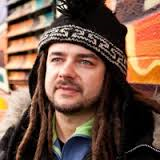Wednesday
Featured StoriesFinding Your Calling
COLUMN: Radical Compassion
– conducted by Cameron Wenaus of Retreat.Guru and Sarah Lipton, Editor-in-Chief of the Shambhala Times
– transcribed by Emma Sartwell and edited by Christopher Schuman
Coming up soon is Naropa University’s celebration of their 40th year. Naropa has assembled some of the world’s most influential practitioners and leaders to explore this compelling topic at their first ever Radical Compassion Symposium. The Shambhala Times teamed up with Retreat.Guru to pursue interviews with a number of these guest teachers. In this conversation, we met with Adam Bucko , who is an activist, spiritual director to many of New York City’s homeless youth, and co-author of a new award-winning book called “Occupy Spirituality: A Radical Vision for a New Generation”. Adam shares with us the path of finding one’s calling.
Finding one’s calling comes out of contemplative experience, which “for me,” Adam Bucko says, “is about essentially being in a state of receptivity and listening.” Contemplative practice has long been described as being about reaching a state of receptivity to what is – receptivity to the presence and activity of God in one’s life.”
In many contemplative traditions, Bucko says, “surrender is a key concept. So when I sense the presence of God in my life and heart, the question is, how can I say yes to it?” For Adam Bucko, it is from an impulse of God, present in everyone’s heart, where the calling is coming from. The path then is learning to surrender to that impulse.
Contemplative practice, for Bucko is about reaching the impulse of God. “Different traditions name it differently,” he says, “but for me, I just call it an impulse of God, or the Holy Spirit.” For Adam, the basic practice involves getting quiet and opening every cell of his being to what is. “It is in that openness that a calling arises,” he continues. “Once in a state of receptivity, we can literally begin to sense it arising in our hearts. Once we feel it then surrendering can occur.” For Bucko, this means complete surrender. “Not just with my mind, not just with my heart, but with every part of my being, every cell of my body, every cell of my heart. And so when I do that, I begin to sense that in the process of almost ceasing to be, I actually discover my uniqueness.”
According to Bucko, it is in the moment of surrender, “that to me, is when the calling comes.” Therefore, the experience of the calling can’t be separated from a contemplative experience, and it can’t be separated from that impulse. ”It cannot be separated because it is only in the impulse that the calling arises.” That is where the unique expression comes into being, and that unique expression is what I consider to be my calling.
This makes a calling not just a passion or a career, but truly how one has formed within this world as a unique being. In both Christian and Jewish traditions, as well as in some elements of the Sufi tradition, when calling is talked of, they usually use very intimate language, “like you are called by your name,” Bucko says. The Jewish tradition really displays the uniqueness inherent in one’s calling with the idea of tikkun olam, which states that this world is broken, and it is up to humans to fix it. “You’re here to perform a specific task of healing, tikkun olam. You’re here to fix one specific thing, and that can’t be fixed unless you say yes to who you are,” shares Adam.
However, to surrender to who we were born to be, according to many traditions, one must also surrender one’s self, or ego. “There’s a paradox there of course – I think it’s interesting to explore a kind of doctrine like no-self in Buddhism, because in my framework, to become uniquely yourself you kind of have to almost cease to be.”
Since everyone’s calling is different, it is understandable that each person’s experience of finding a calling would be different. “For me, it definitely has a felt-sense component where I literally feel it in my body arising, almost like a sensation of being grabbed, if I can let it do that,” Bucko says of his own experience.
Even with different experiences, however, finding one’s calling is still intrinsically linked to contemplative practice, and the action of surrender. This is because following a calling, once found can be very difficult. “Society is not really set up to help us realize our callings,” he says. “Sometimes your calling puts you in conflict with the institutions you belong to, with smart decisions about life and making a living, and also the systems that we all participate in. So it’s easy, in a sense, to just be like, okay enough of this, that was very nice, but now how can I move forward?” In a way, this makes realizing and following ones calling a contemplative act in itself, “it’s a constant practice and challenge.”
The challenges can very well put one off to finding or realizing a calling. The most important thing to remember, perhaps, is that we do not have to do it alone. “I think that’s why we need a sangha, mentors and friends, because it’s very difficult to build that courage alone. I think that as communities, as friends on the spiritual path, we can do that for each other. We can help each other to see what’s trying to emerge, and affirm it for each other.”
Stay tuned for more conversations with Adam, as well as conversations with Lama Tsultrim Allione, Noah Levine and Jerry Colonna.
~~
 Adam Bucko is an activist, spiritual director to many of New York City’s homeless youth, and co-author of a new award-winning book called Occupy Spirituality: A Radical Vision for a New Generation. Adam grew up in Poland during the totalitarian regime and spent his early years exploring the anarchist youth movement as a force for social and political change. At the age of 17, Adam immigrated to America where his desire to find his path towards a meaningful life led him to monasteries in the US and India. His life-defining experience took place in India, where on his way to a Himalayan hermitage, he met a homeless child who lived on the streets of Delhi. This brief encounter led him to the “Ashram of the Poor” where he began his work with homeless youth. After returning to the US, he worked on the streets of various American cities with young people struggling against homelessness and prostitution. He eventually co-founded The Reciprocity Foundation, an award winning nonprofit dedicated to transforming the lives of New York City’s homeless youth.
Adam Bucko is an activist, spiritual director to many of New York City’s homeless youth, and co-author of a new award-winning book called Occupy Spirituality: A Radical Vision for a New Generation. Adam grew up in Poland during the totalitarian regime and spent his early years exploring the anarchist youth movement as a force for social and political change. At the age of 17, Adam immigrated to America where his desire to find his path towards a meaningful life led him to monasteries in the US and India. His life-defining experience took place in India, where on his way to a Himalayan hermitage, he met a homeless child who lived on the streets of Delhi. This brief encounter led him to the “Ashram of the Poor” where he began his work with homeless youth. After returning to the US, he worked on the streets of various American cities with young people struggling against homelessness and prostitution. He eventually co-founded The Reciprocity Foundation, an award winning nonprofit dedicated to transforming the lives of New York City’s homeless youth.

















